Onions (general information)
Family Onions (Alliaceae).
The native land of the plant is considered to be Central Asia, from where it spread to immemorial times in Greece, Egypt, Rome. It is believed that Afghan, Iranian, Turkmen shepherds and hunters wandering along mountain trails were the first to learn the taste of onions. There and now you can meet a wild onion. A lot of wild onion grows in Siberia, occasionally it occurs in the outskirts of the Belarusian Polissya, and even in parks and squares of cities, the outskirts of which adjoin the forest.
Wild onions are very useful, rich in vitamins, trace elements and phytoncides. Many people use it for food.
In the forests, wild onions are eaten by animals, in particular wild boars, as mentioned by Heinz Meinhard, author of "My Life Among Wild Boars", a well-known researcher in the conditions of a unique natural experiment on these animals.
Many varieties, species, subspecies of wild onions are gradually exterminated by man. Thus, it is known that bear onions, found in the Caucasus and in many regions of Ukraine, especially in the Carpathian Mountains, in forest wet massifs, are practically destroyed by unorganized collectors. But the plant is a very valuable wild-growing vitamin food product.
Onions have long been considered a powerful remedy against diseases. In ancient Greece, according to the ancient Roman physician Pedonia Dioscorides, onions were recommended for the excitation of appetite and "as a cleanser." The Romans and Greeks attributed the bow to the ability to arouse an inexhaustible vitality, energy, courage, and in large numbers used it in feeding the warriors.
Healing properties of onions were also known in the countries of the Ancient East , where they said: "Onions, in your embrace there is all sorts of sickness."
During the Middle Ages, the onions were so popular and so people believed in its healing and protective power that they used as a talisman that could protect from the evil eye, the sorceress's spell, the shooting of arrows, the wounding of a sword, a spear, a halberd. The knights, wrapped in impenetrable metal armor, wore a bulb on their chests.
In Ancient Egypt, onion was so appreciated as a medicine that protects against diseases , as a nutritious plant that depicted it even on monuments, coats of arms.
For a long time onions were grown and cultivated in Russia. Old Russian cuisine widely used onions for cooking and seasoning from it. Foreign travelers and diplomats who visited Russia noted that most Rusyns use so sharp dishes that they are impossible.
Onions became the staple food of commoners in Russia. Bread and kvas, and raw onion - these are the basic foodstuffs of peasants, artisans, soldiers. People, of course, could not know at that time about the phytoncidal properties of onions, which have a beneficial effect on improving the body's immunity, its resistance to disease.
In one ancient Russian herbalist there is such an description of the healing ability of onions: "It is pleasant for the womb to soften, but it makes you crave and the spirit that stinks from your mouth destroys ... being ingested, it acts with delicacy of the stomach and digestion, cramps of hysterical women, mucous and convulsive dyspnea, Water and stone disease, as well as in scurvy and worms ... During prevailing contagious diseases it is very useful to add onions to food for breakfast, make soups from onions with the addition of salt, pepper, a little vinegar. "
The curiosity of onion was largely understood only with the discovery of phytoncides (special volatile substances of vegetable origin that kill microorganisms) that can disinfect the environment, affecting many and many groups of microorganisms. The discovery of phytoncides belongs to the well-known researcher Academician B. N. Tokin. It was he who first noticed that the volatile substances of the crushed onion were destructive to yeast cells.
Two centuries ago, we used onions in the treatment of typhus, influenza, scurvy, vision loss, impotence and other diseases, as well as wounds, burns, hair loss.
Onions and garlic eggs were placed in sick animals' rooms or hung around their necks by cows, sheep, horses.
Assorted onions
Onion (Allium cepa)
The most common type of onions. Onions are known since ancient times. Now everywhere it is cultivated in the open ground and hotbeds.
Chopped onion, or chives, or onions (Allium schoenoprasum)
Onions, or chives , grow wild in the wild on mountain slopes, damp meadows, in the floodplains of the rivers of the northern and central regions of Asia, in all European countries and in North America. In large quantities, chives are found in Kamchatka, Altai, and Western Siberia.
Since the XVI century. Schwitt-onion is introduced into the culture in European countries and is considered a favorite early vegetable. This onion grows a bush, has a soft and pleasant taste, quickly grows in the spring, literally grows from under the snow. In winter, it can grow in an apartment on a windowsill in pots or boxes.
Onion-Butter (Allium fistulosum)
Onions are called still onions. This is a perennial plant. It grows wild in Siberia and the Far East, it is cultivated in many countries of the world, especially in Korea, Japan, China, where it has been cultivated since ancient times. In the open ground, onion-batn can be cultivated even beyond the latitudes of the polar circle. The onion-baton awakens under the snow, and two to three weeks after its emergence, large enough onions can already be eaten.
Leek (Allium porrum)
A very cold-resistant variety of onions is also a leek . It is believed that the birthplace of the leek is Central Asia, from where the plant was exported to the Mediterranean and spread throughout the globe. Leeks are widely used in nutrition and folk medicine. Greek, Roman, Egyptian and Arab physicians of antiquity mention this bow in their works. He is widely cultivated in European countries - especially in Holland, France, Bulgaria, Germany. The most widely used in nutrition and traditional healing is leeks used in the Caucasus and the Kuban.
Leek preserves its qualities well when dried and can be used in dry form. This was noticed by the Egyptians, and Pharaoh Cheops rewarded his entourage with a bunch of dry leeks.
The use of onions in medicine
The curative properties of onions, as we have already said, are due to the presence in it of phytoncides, which destroy bacteria - causative agents of dysentery, tuberculosis, streptococci, etc. In addition, onions contain many vitamins: provitamin A, or carotene, vitamins B, PP, E and Etc. The most rich onion is vitamin C - ascorbic acid, the daily requirement of which is contained in 80 - 100 g of green onions.
Onions are also rich in mineral salts, essential oils, sugars, organic acids, nitrogenous substances. The sharp taste of onions and a peculiar smell arouse appetite. The healing properties of onions are seen and tested in the scientific research of many medical and pharmaceutical research institutes.
What is the healing effect of onions, except bactericidal properties and balance of vitamins? Biologically active substances of onion activate the motor and secretory function of the gastrointestinal tract, stimulate the heart activity, reduce the level of cholesterol, promote the normalization of pressure. Freshly prepared onion juice is useful for use in angina, bronchitis, pneumonia. Kashitsa from grated onions wrapped in gauze, the people's doctors of the past cleared wounds and boils, overlaid frostbitten and burned areas. Healing of boils and pustules on the skin was also promoted by baked onions. Use raw onion and with nephrolithiasis, like a diuretic with dropsy.
Onions stimulate working capacity, relieve physical and mental fatigue, have a beneficial effect on patients with impotence, with inflammatory processes in the sexual organs of women and men. Juice of onion improves skin trophism, hair roots and is used for hair loss, seborrhea, freckles.
The direct hypoglycemic effect of onion juice is not very pronounced. Thus, when studying the activity of fresh onions in diabetes mellitus of moderate severity, we obtained a decrease in the level of glycemia by an average of 1.9-2.0 mol / l or, which corresponds to the indices in the old expression, by 36-39 mg% (30-39 mg Per 100 ml of blood). If this amount of juice was used in combination with other vegetable edible sugar-reducing plants (a salad of dandelions, plantain, sporach, etc.), the value of glucose reduction was 1.5 to 2 times higher, which is a quite acceptable value for the clinical effect in The reduction of glucose in patients with mild and moderate diabetes mellitus. However, taking into account the beneficial influence of onions on the processes of vitamin metabolism, strengthening of the vascular wall, cholesterol level, digestive system and cardiovascular system activity, its use in the systematic nutrition of diabetic patients should be considered expedient and necessary.
Onion should be constantly put in soups, broths, rassolniki and saltwort to improve the taste of food and flavor. In addition, use the onions for cooking salads, second courses, side dishes and sauces.
Preparation
- Drops from onion : Onion is rubbed on a fine grater and squeezed out the juice. Mix with cold water in a ratio of 1: 1. Wet the cotton wool in the diluted juice and the turundock is inserted into the nose. Apply for rhinitis.
- Kashitsa from onion with honey : Rub the onion, the gruel is mixed in equal proportion with honey. Lubricate sores in the mouth, use for applications on the gums with diabetic periodontal disease.
- Juice of onions : Juice from onions are rubbed into the skin of the scalp for 20 to 30 minutes before washing hair with seborrhea, dandruff, nesting baldness, weak hair growth.
- Infusion of onions : Onions are finely chopped and poured cold boiled water in a ratio of 1: 4. Insist a day in a closed bank, drink half the glass three times a day for a week with a decrease in visual acuity. (You can add honey 5 - 7 g at the reception.)

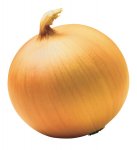
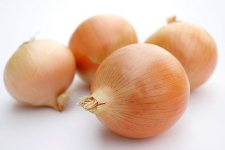
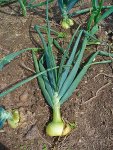
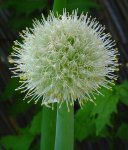
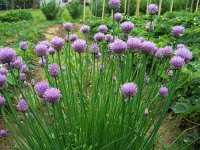
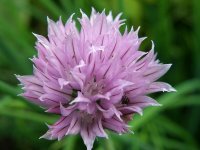
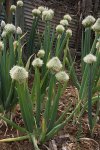
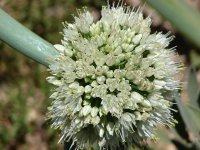
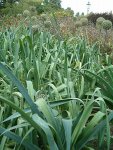
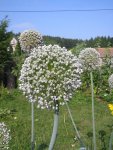

Comments
When commenting on, remember that the content and tone of your message can hurt the feelings of real people, show respect and tolerance to your interlocutors even if you do not share their opinion, your behavior in the conditions of freedom of expression and anonymity provided by the Internet, changes Not only virtual, but also the real world. All comments are hidden from the index, spam is controlled.